Declaring bankruptcy is a major decision that can have far-reaching consequences OR benefits — depending on how you go about it. It can provide relief from overwhelming debt and stop creditor harassment, but it can also damage your credit score (only in the short term) and result in the loss of certain assets (but not always).
Understanding the pros and cons of bankruptcy can help you make an informed decision about whether it is the right option for you.
Introduction to Bankruptcy
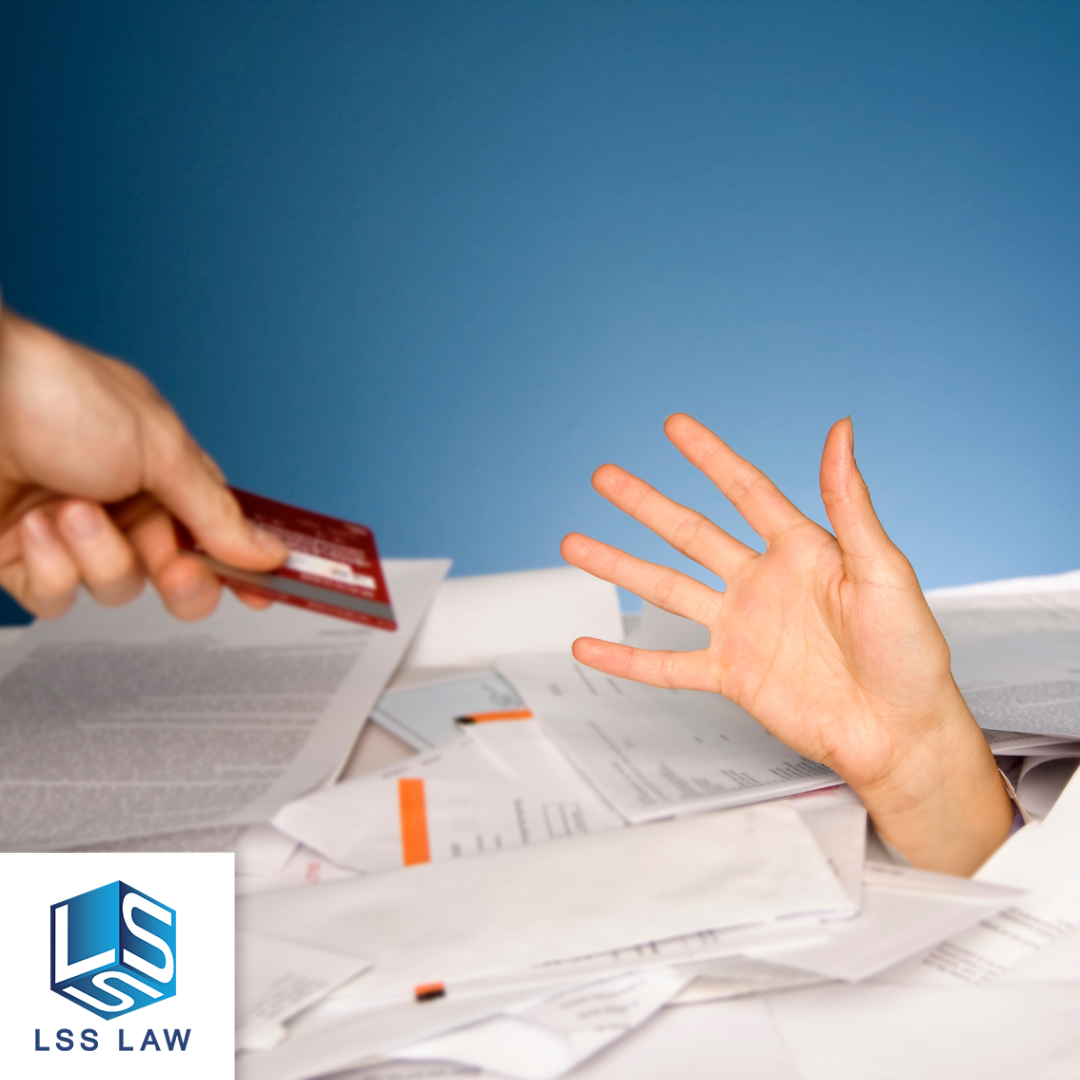
Bankruptcy is a legal process that allows individuals or businesses to obtain relief from overwhelming debt. By filing for bankruptcy, a person can either liquidate their assets to pay off creditors or reorganize their debts to make them more manageable.
There are two main types of bankruptcy that individuals can file: Chapter 7 and Chapter 13.
Chapter 7
Chapter 7 bankruptcy involves the liquidation of assets to pay off creditors. It is generally available to individuals, but it is not available to businesses.
To qualify for Chapter 7 bankruptcy, a person must pass a means test, which compares their income to the median income in their state. If their income is below the median income, they may be eligible for Chapter 7 bankruptcy.
Chapter 13
Chapter 13 bankruptcy involves the reorganization of debts through a repayment plan (monthly debt payments).
It is available to both individuals and small businesses. To qualify for Chapter 13 bankruptcy, a person must have a regular income and their debts must fall within certain limits.
Pros of Filing Bankruptcy
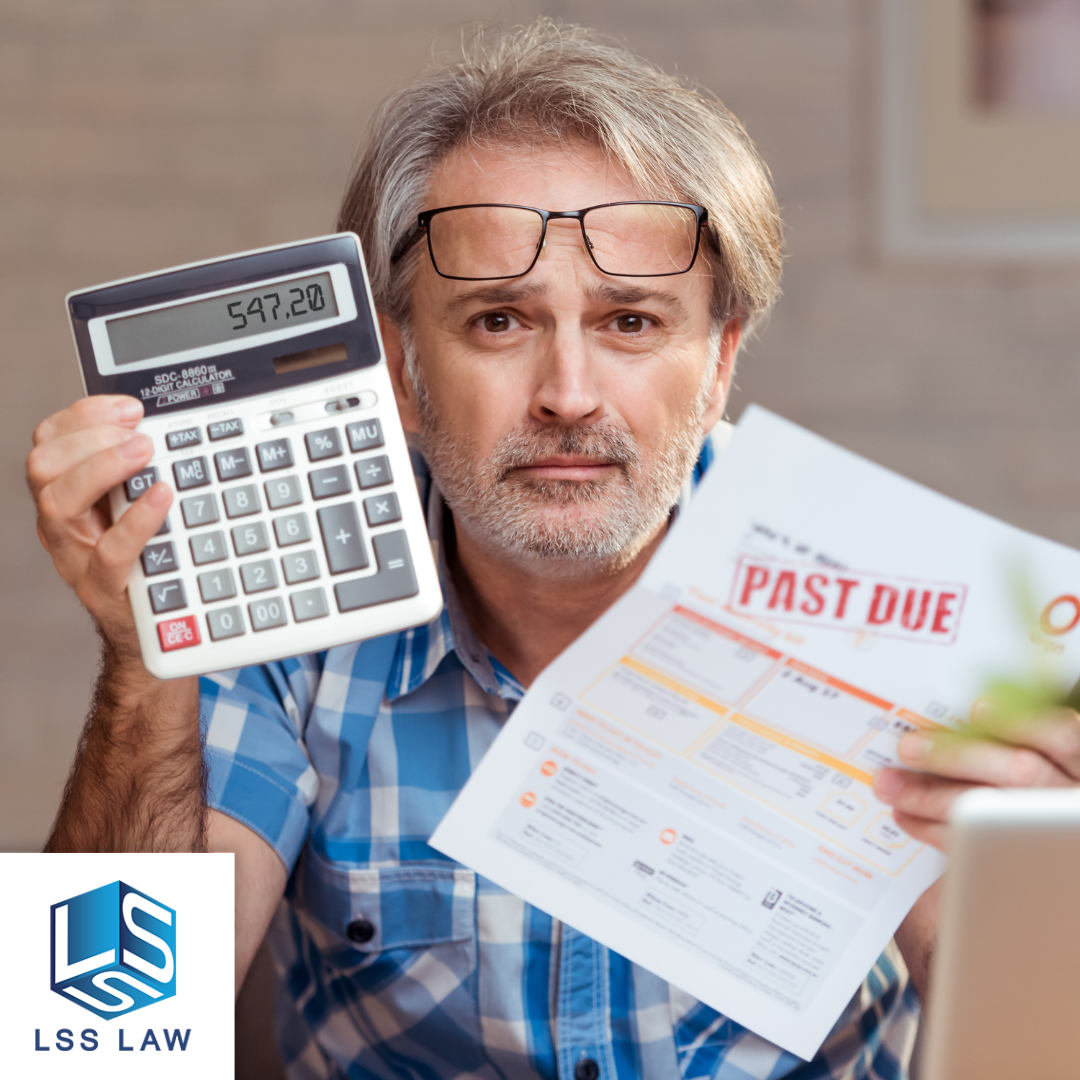
There are several pros to filing for bankruptcy. Here are a few of the main benefits:
Elimination of Debt
One of the biggest pros of filing bankruptcy is the potential to eliminate certain types of debt. In a Chapter 7 bankruptcy, a person’s assets are liquidated and the proceeds are used to pay off creditors.
Some Types of Debt Can Be Completely Wiped Out
Some types of debt, such as medical bills and credit card debt, can be completely wiped out in a Chapter 7 bankruptcy.
In a Chapter 13 bankruptcy, a person’s debts are restructured into a repayment plan, which can make them more manageable and allow the person to pay off their debts over time.
Stopping Creditor Harassment
Creditor harassment can be a major source of stress for people struggling with debt. Filing for bankruptcy puts an automatic stay in place, which stops debt collectors from taking any collection actions against the person.
This includes phone calls, letters, and lawsuits. The automatic stay gives people a chance to catch their breath and come up with a plan to deal with their debts.
Keeping Assets
In Chapter 7 bankruptcy law, a person’s assets may be liquidated to pay off creditors. However, certain types of assets are exempt from liquidation, which means they can be protected from being seized by creditors.
Exemptions Vary by State
These exemptions vary by state, but they typically include things like a person’s home, car, and personal possessions. In a Chapter 13 bankruptcy, a person’s assets are not liquidated, so they are generally not at risk of being seized.
Improving credit score in the long term
Filing for bankruptcy can have a negative impact on a person’s credit score in the short term, as it stays on a person’s credit report for up to 10 years. However, bankruptcy can also provide a fresh start and allow a person to rebuild their credit over time. By eliminating debt and making a plan to pay off their debts, a person can improve their credit score in the long term.
Cons of Filing Bankruptcy Filing
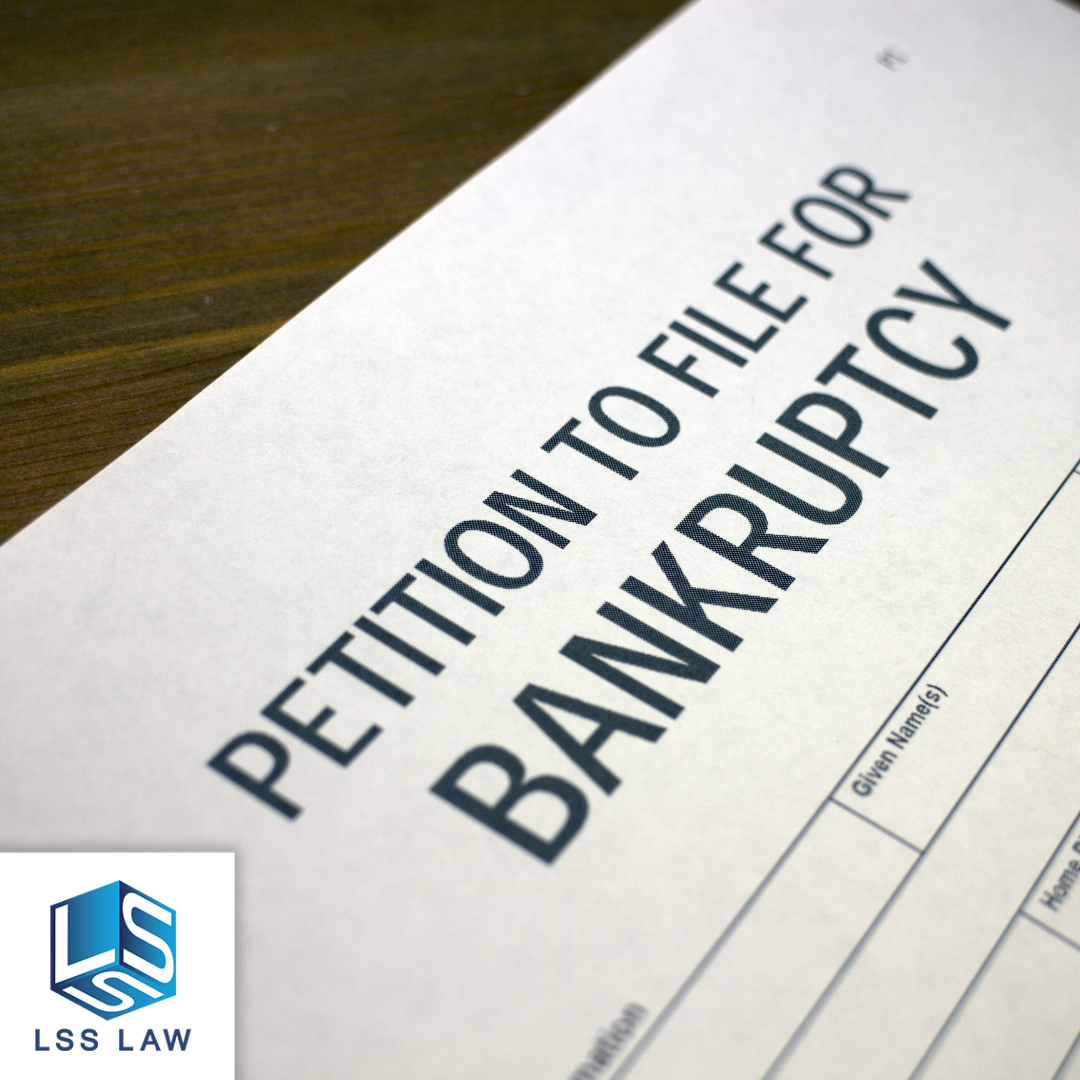
While there are pros to filing for bankruptcy, there are also several cons to consider. Here are a few of the main drawbacks:
Short-Term Damage to Your Credit Report
Filing for bankruptcy can have a significant impact on a person’s credit score. It stays on a person’s credit report for up to 10 years.
MYTH: After filing bankruptcy it will be impossible to get credit.
FACT: Most people start getting offers for new lines of credit immediately after filing for bankruptcy. Just be careful to choose the right ones so you don’t fall back into the credit card trap again!
Potential Loss of Some Assets (Not Always)
In a Chapter 7 bankruptcy, a person’s assets may be liquidated to pay off creditors. This can result in the loss of certain assets, such as a second home or a valuable collection.
Even though certain assets may be exempt from liquidation, a person may still need to give up some of their assets to pay off their debts.
Fun fact: Most people who file bankruptcy with LSS Law’s help end up not losing any assets at all!
The Stigma (It’s All Wrong!)
There is still a stigma attached to bankruptcy, and some people may view it as a sign of financial failure. This can be a source of embarrassment and can make it difficult for people to rebuild their credit and financial reputation. But the truth is, bankruptcy can be the most financially important decsion of your life. Bankruptcy gives people the chance to start over with a clean slate. You really shouldn’t let this completely false idea stop you from finally getting the stress-relief you need to live a quality life.
A Brief Look at Chapter 7 Bankruptcy
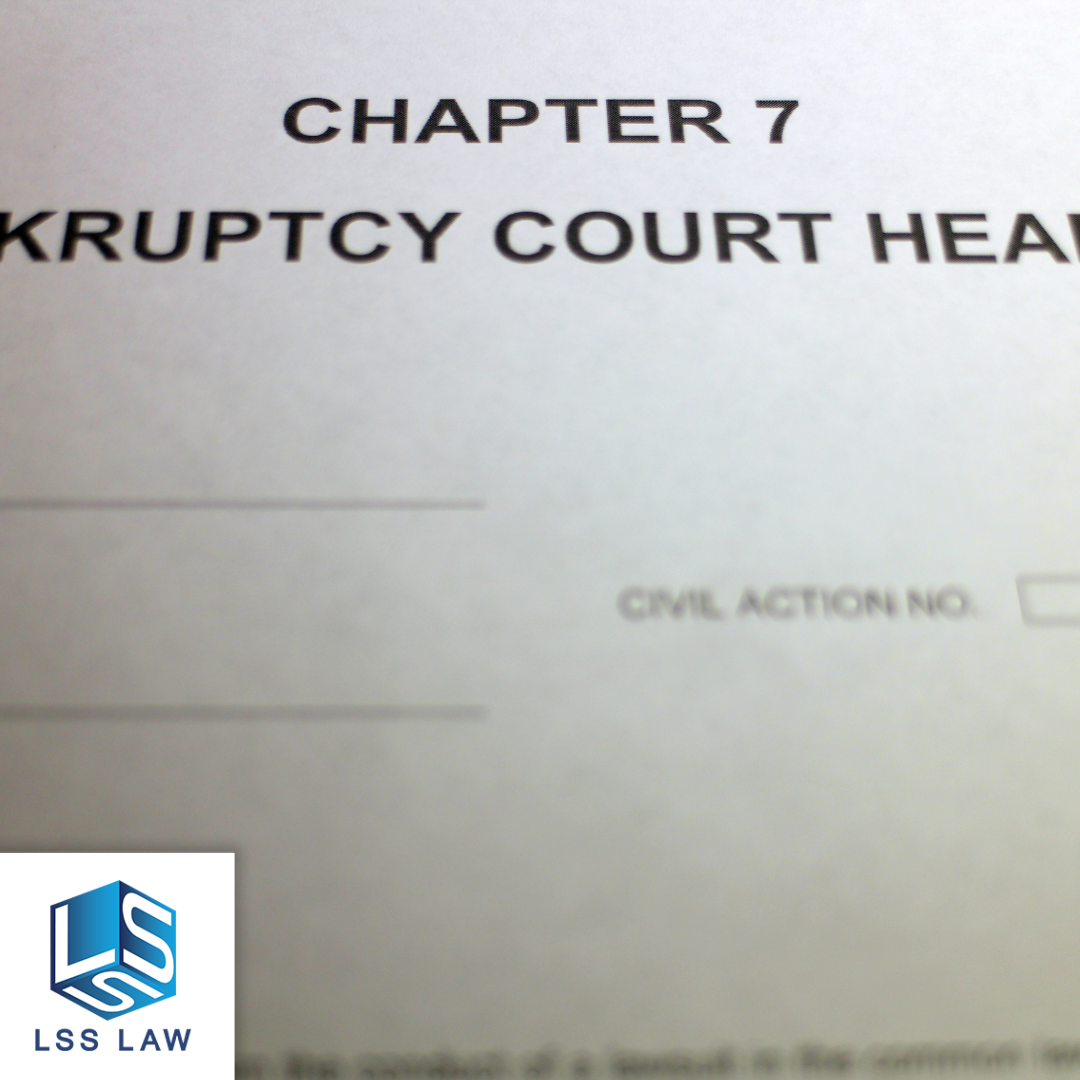
Overview of Chapter 7 bankruptcy
Chapter 7 bankruptcy is a type of bankruptcy that involves the liquidation of your assets to pay off your debts. It is typically used by individuals who do not have the ability to repay their debts and do not have significant assets to protect.
Eligibility for Chapter 7 bankruptcy
To be eligible for Chapter 7 bankruptcy, you must pass a means test, which is used to determine if you have the ability to repay your debts. The means test looks at your income, expenses, and debts to determine if you are eligible for Chapter 7 bankruptcy.
Process for filing Chapter 7 bankruptcy
The process for filing Chapter 7 bankruptcy involves gathering financial documents, completing a credit counseling course, and filing a petition with the bankruptcy court. You will also need to attend a meeting of creditors and complete any required financial management courses.
Potential Outcomes of Chapter 7 bankruptcy
If your Chapter 7 bankruptcy is approved, you will receive a discharge, which means most of your debts will be eliminated. Some of these debts may include personal loans, medical debt, credit card debt, car loan, some tax debts (some income taxes), and more.
You May Have to Surrender Assets
Chapter 7 bankruptcy filings may require you to surrender certain assets to the bankruptcy trustee to be sold and used to pay off your debts.
Not All Debts Can Be Eliminated
However, not all debts can be eliminated. Some debts that can’t be eliminated are child support, student loan debt, federal student loans, and more. The remaining debt will be much easier to conquer after your discharged debt is finally off your plate and you have less financial stress.
Keep in mind that there are always exceptions. It depends! Your best bet will always be to schedule a no-cost bankruptcy Strategy Session with us. That way we can really dig in and see what’s possible and what’s not.
A Brief Look at Chapter 13 Bankruptcy
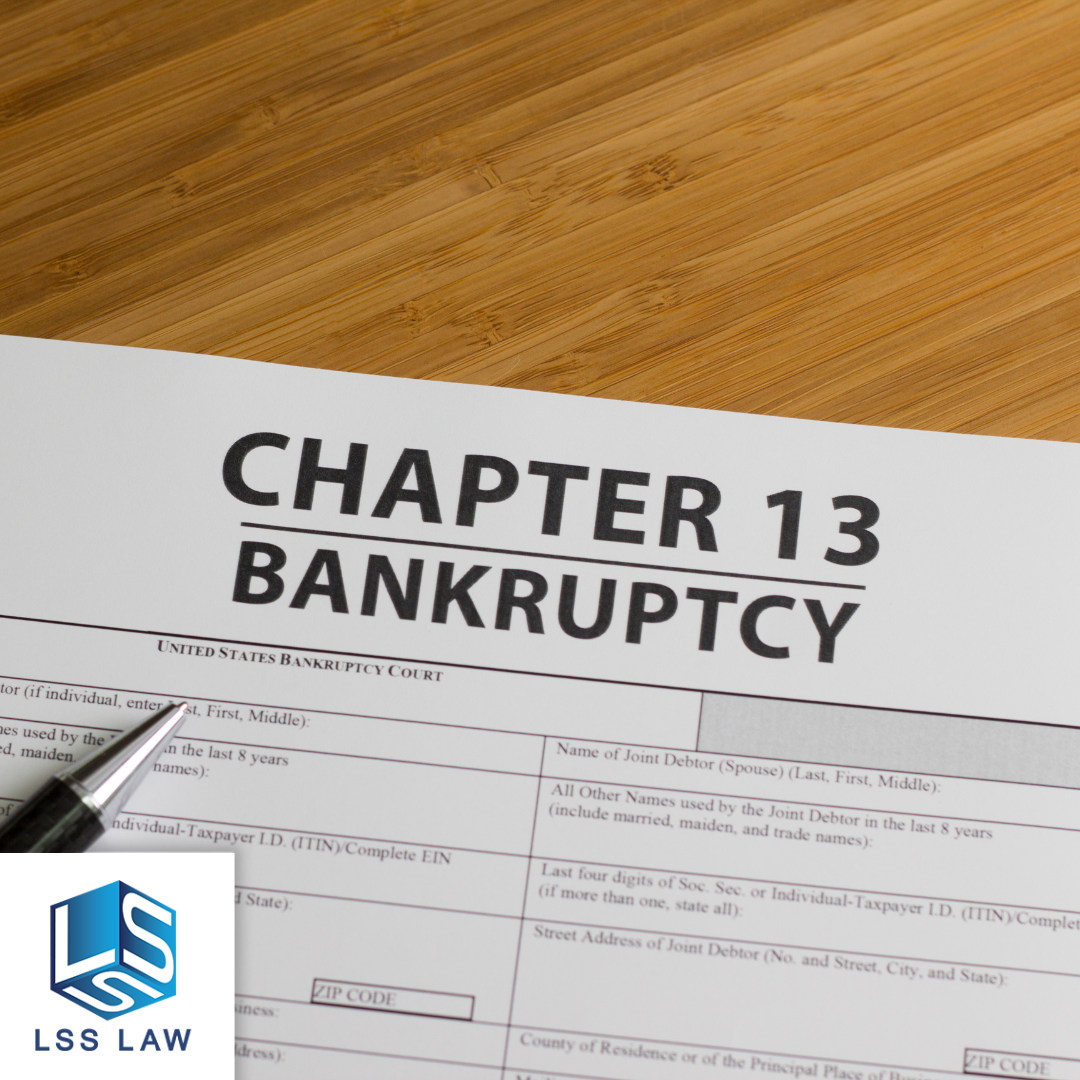
Overview of Chapter 13 bankruptcy
Chapter 13 bankruptcy is a type of bankruptcy that involves the reorganization of your debts into a repayment plan. It is typically used by individuals who have a regular income and the ability to repay some of their debts, but need a more manageable payment plan.
Eligibility for Chapter 13 bankruptcy
To be eligible for Chapter 13 bankruptcy, you must have a regular income and unsecured debts that do not exceed certain limits. You must also be current on your mortgage and car payments.
Process for filing Chapter 13 bankruptcy
The process for filing Chapter 13 bankruptcy involves gathering financial documents, completing a credit counseling course, and filing a petition with the bankruptcy court. You will also need to attend a meeting of creditors and propose a repayment plan that is approved by the court.
Potential outcomes of Chapter 13 bankruptcy
If your Chapter 13 bankruptcy is approved, you will be required to make payments according to the terms of your repayment plan.
If you complete the repayment plan, your remaining unsecured debts will be discharged.
Schedule a No-Cost, Debt Relief Consultation with LSS Law
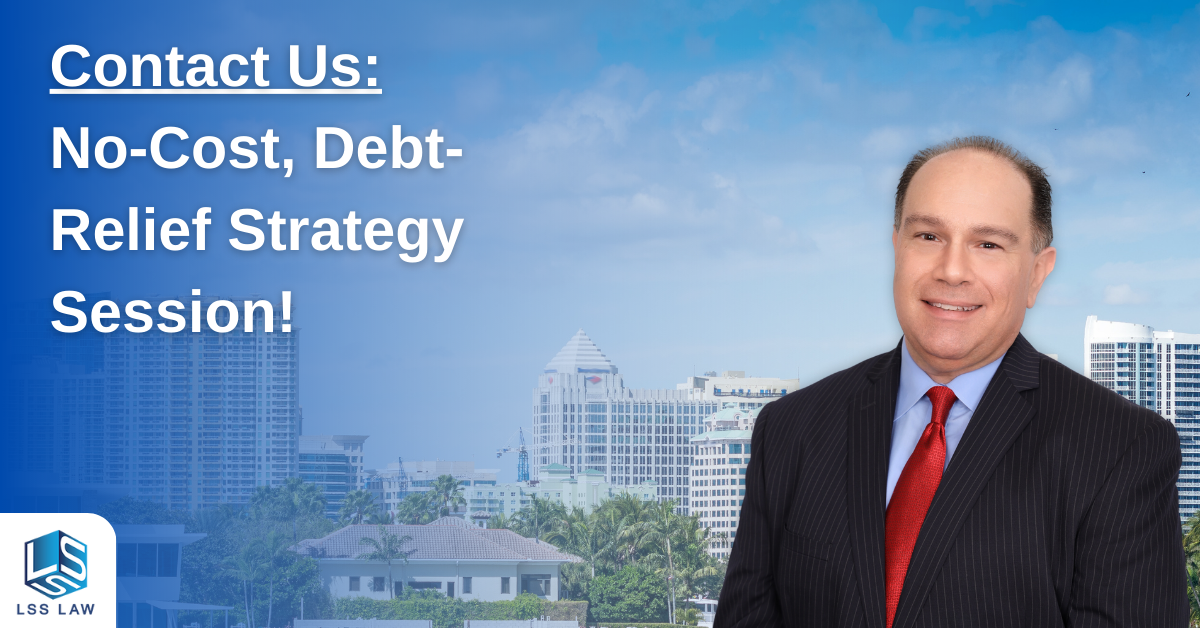
Filing bankruptcy is a major decision that requires careful consideration. If you are struggling with financial obligations and considering bankruptcy for debt relief, it is important to seek the advice of an experienced bankruptcy lawyer.
Doing Nothing Changes Nothing.
LSS Law Bankruptcy attorneys in South Florida offer no-cost bankruptcy Strategy Sessions to help you understand your options and make an informed decision to improve your financial situation. Visit https://lss.law/contact or call 954-466-0541 to schedule your Strategy Session.
Pros and Cons of Filing Bankruptcy – Your Questions Answered
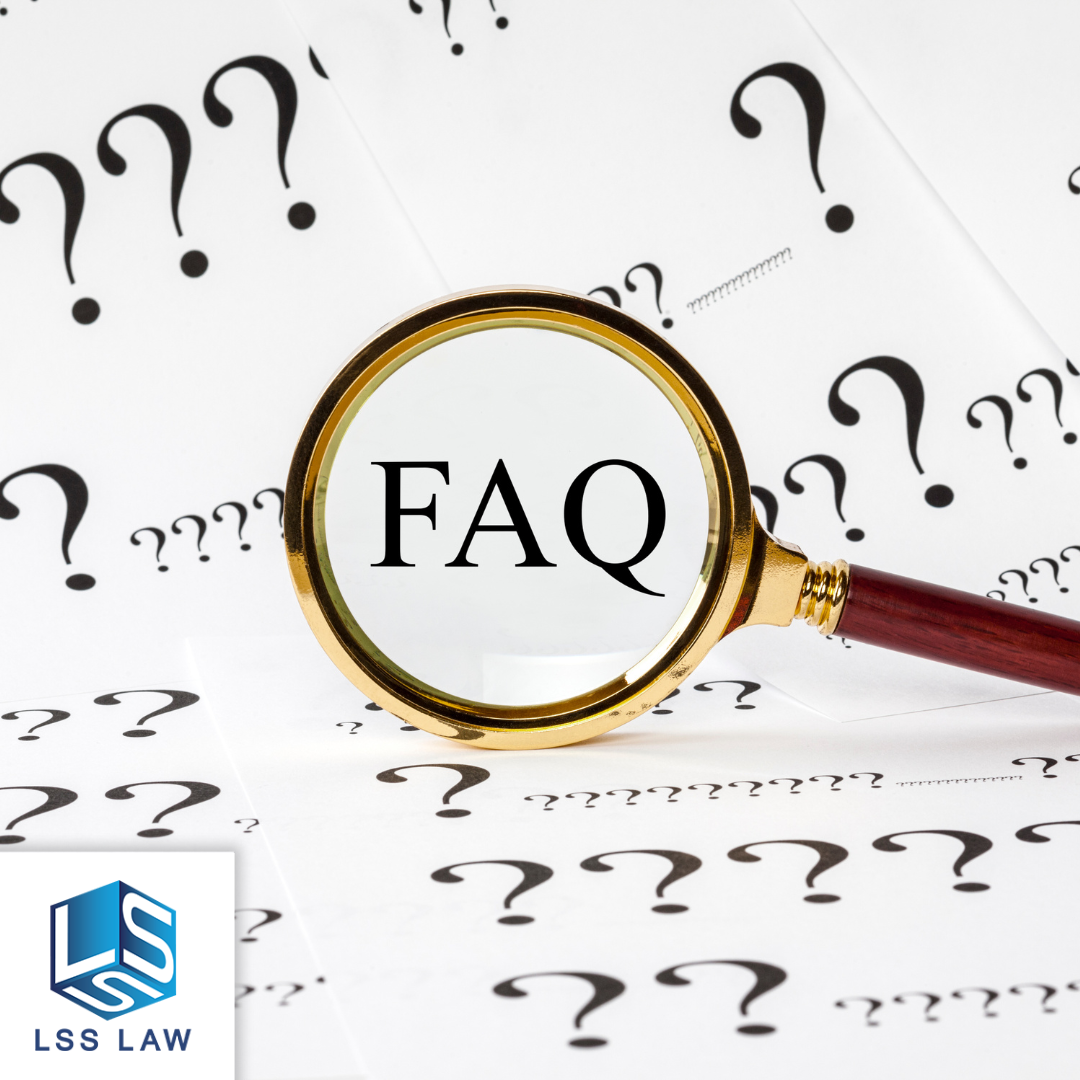
The decision to declare bankruptcy and recover your financial life can be a confusing and overwhelming process. Here are some frequently asked questions and answers to help you better understand bankruptcy and decide if it is the right option for you.
What is bankruptcy?
Bankruptcy is a legal process that allows individuals or businesses to obtain relief from overwhelming debt. By filing for bankruptcy, a person can either liquidate their assets to pay off creditors or reorganize their debts to make them more manageable. There are two main types of bankruptcy that individuals can file: Chapter 7 and Chapter 13. Bankruptcy can provide relief from overwhelming debt and stop creditor harassment, but it can also have negative consequences, such as damage to a person’s credit score and the loss of certain assets.
How does Chapter 7 bankruptcy work?
Chapter 7 bankruptcy involves the liquidation of assets to pay off creditors. It is generally available to individuals, but it is not available to businesses. To qualify for Chapter 7 bankruptcy, a person must pass a means test, which compares their income to the median income in their state. If their income is below the median income, they may be eligible for Chapter 7 bankruptcy.
How does Chapter 13 bankruptcy work?
Chapter 13 bankruptcy involves the reorganization of debts through a repayment plan. It is available to both individuals and small businesses. To qualify for Chapter 13 bankruptcy, a person must have a regular income and their debts must fall within certain limits.
What are the pros of filing bankruptcy?
There are several pros to filing for bankruptcy. It can provide relief from overwhelming debt and stop creditor harassment. It can also allow a person to keep certain assets that are exempt from liquidation and provide a fresh start to rebuild credit over time.
What are the cons of filing bankruptcy?
There are also several cons to consider when it comes to filing for bankruptcy. It can damage a person’s credit score in the short term and result in higher interest rates on loans and credit cards. It can also result in the loss of certain assets.
Is bankruptcy right for me?
Deciding whether bankruptcy is the right option for you is a personal decision that requires careful consideration. It is important to seek the advice of an experienced bankruptcy attorney to understand your options and make an informed decision. Keep in mind that it may be a good idea to receive credit counseling, because it may be required for your bankruptcy regardless.
How can I file bankruptcy in Fort Lauderdale?
LSS Law Bankruptcy attorneys in South Florida offer no-cost bankruptcy Strategy Sessions to help you understand your options and decide if bankruptcy is the right option for you. Visit https://lss.law/contact or call 954-466-0541 to schedule your Strategy Session.






